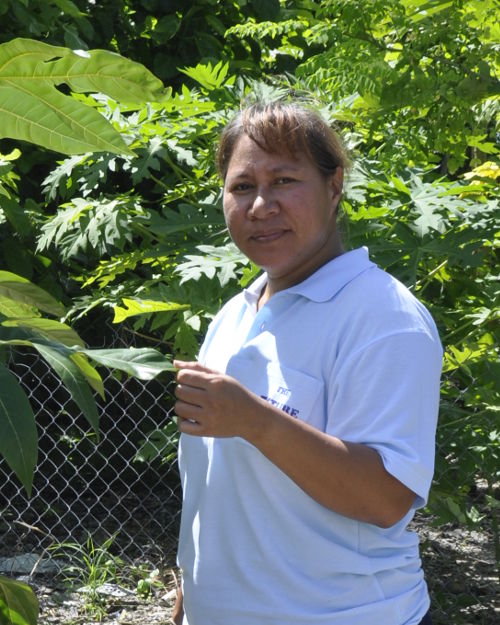
Valerie Saena Tuia, Plant Scientist, Samoa
‘No country is self-sufficient in genetic resources, which are the common heritage of mankind. All countries interdepend on one another in order to be food-secure.’
Samoan Valerie Saena Tuia is a leading expert on plant genetic resources who has made significant contributions to advancing food security in the Pacific Islands region. She was the Curator and then Genetic Resources Coordinator of the Pacific Community’s Centre for Pacific Crops and Trees (CePaCT) in Fiji for over 15 years until early 2017.
Ms Tuia has carried out pioneering scientific research, established the world’s largest collection of taro, managed the region’s internationally-recognised plant genebank, authored scientific publications and mentored scores of young Pasifika scientists.
During her time at SPC, she brought in significant funding for plant genetic resources in the Pacific, which has helped to preserve the physical and cultural heritage of the region.
Her work involved considerable travel across the Pacific and beyond to collect different crops under international treaties for conservation by CePaCT and during her tenure over 1,500 new accessions were collected and established from a range of sources. CePaCT now holds the largest collection of taro in the world, and is recognised as a Centre of Excellence. Using this collection, new dynamic varieties of taro tolerant to leaf blight disease produced in Samoa and Papua New Guinea have been ranked as the best in the world.
Ms Tuia was also instrumental in developing a number of new tissue culture protocols for the establishment of regionally-important crops such as breadfruit, bele, ginger, pandanus, swamp taro, ginger, xanthosoma, sugarcane and kava.
One particular highlight was developing a protocol for propagating breadfruit, a Pacific staple crop, using a novel ‘bioreactor’ system. This protocol has meant that plantlets are ready to be planted out in the field after only 30 weeks, compared to 44 weeks using previous methods. In addition, these plantlets are more vigorous, sturdier and taller than those grown using conventional tissue culture methods.
Ms Tuia has also mentored innumerable young Pacific women scientists over the past two decades. These women have subsequently gone on to contribute to sustainable agricultural development nationally, regionally and internationally.
She instigated monthly capacity building for CePaCT staff and the promotion of opportunities for skill empowerment through participation in regional and overseas trainings and workshops. This has been vital for scientific growth and development in the region.
Ms Tuia finished her term with CePaCT in early 2017 and returned to Samoa, where she runs a successful family business.
